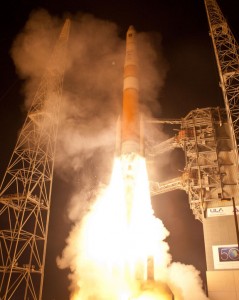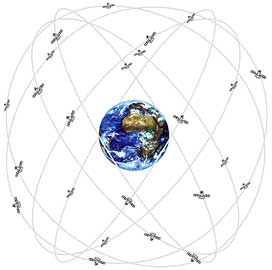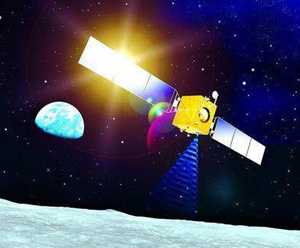An inside look at the latest GPS Satellite Upgrade

Beau Backus, or GeoBeau, is a geocacher who works in the satellite industry. He joined Geocaching.com representatives on a tour of the Boeing satellite manufacturing plant near Los Angeles, California. He says we are witnessing GPS evolve at a rapid pace: “We are really seeing a good change in the way GPS is evolving. It has gone from being strictly for military systems to where we are today; it is moving into a part of our social structure.”
On July 14, 2011, the U.S. launched its most recent GPS satellite in order to improve GPS accuracy all over the world. Whether we are aware of it or not, we have free access to billion dollar satellites on a daily basis, and it’s getting better. The U.S. government is in the process of replacing the current GPS constellation of satellites.

GPS satellite 2F-2 replaces a 20-year-old GPS satellite that has long surpassed its intended lifespan. This new and improved satellite features improved accuracy, enhanced internal atomic clocks, better anti-jam resistance, a signal for commercial aviation, a longer lifespan and reprogrammable on-board processors to evolve with future needs. The addition of this satellite will boost signal reception to users in difficult terrains and accuracy worldwide.
“The average geocacher has come to rely on GPS satellites always being there, and the signal always being there,” says GeoBeau.
Following the first launch of Sputnik in 1957, many satellites have been launched from countries around the world. They now orbit earth in a very particular pattern. More than 30 of those satellites are GPS satellites. Growth in the number of satellites has enabled the Global Positioning System (GPS) to become increasingly accurate.
After touring the Boeing facility in California, GeoBeau could not help but to notice the “enthusiasm that the engineers had toward geocaching and geocaching in the future.” The benefits of increased accuracy include more detailed navigation systems and 3D geo-spatial positioning, thus improving our favorite hobby of geocaching.

China, Russia and the European Union have and will be launching GPS satellite systems into orbit in the near future. In April, China launched its annual satellite, the Beidou-2, and is expected to have its own fully functional GPS constellation by 2020. Russia recently launched the Glonass-K M36 in hopes of improving its consumer GPS technology. The European Union’s GPS satellite constellation, Galileo, is not expected to be ready to launch until 2014 or 2015.
The launching of new satellites means that we all have access to an increasingly accurate billion dollar commercial utility GPS upgrade for free.
Beau says that GPS hobbies like geocaching actually enable us to break down social and political barriers. “Geocaching is now a global interactive hobby that allows us to more closely interact with our brethren throughout the world.”
Hear more from GeoBeau on the importance of the GPS industry. Check out this video.
[youtube]zdlKegHPv9E[/youtube]




